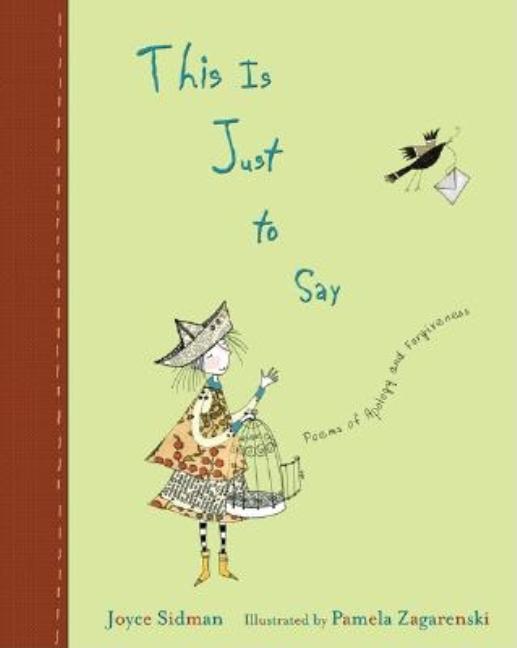Book Description
for This Is Just to Say by Joyce Sidman and Pamela Zagarenski
From Cooperative Children's Book Center (CCBC)
Inspired by William Carlos Williams’ poem “This Is Just to Say,” a class of fictional sixth-grade students write poems of apology as part of their poetry unit. Their poems express regret (often genuine and occasionally feigned) for a host of things. Reuben is sorry he hit Kyle in dodge ball, and Kyle is sorry he hit Reuben (although he’d do it again). Carmen is sorry for making a joke about the dress her teacher, Mrs. Merz, was wearing one day (“You smiled, / but your smile looked like a frozen pond.”). José apologizes to his dad for the window he broke as a kid, and DaRon apologizes to his big brother, Lamar, for being an embarrassment. The students’ poems have been compiled in a book that also features responses—poems they asked the recipients of the apologies to write. Kyle and Reuben pen a poem in two voices, “Dodge Ball Kings,” while Mrs. Merz writes a haiku of forgiveness to Carmen. José’s dad writes that he doesn’t know how to write a poem but “I’m proud, real proud / of you . . . forget about the window / it’s ancient history.” And Lamar writes DaRon a poem expressing immense pride in his little brother. Joyce Sidman’s wonderfully imagined collection is full of humor and tenderness, expressed in poems that offer brief yet exacting portraits of the diverse children she’s created, as well as glimpses into their lives. Pamela Zagarenski’s whimsical illustrations, presented as the work of one of the students and the art teacher, along with footnotes in the voice of the fictional student editor of the compilation, add further charm to this captivating volume. (Ages 8–11)
CCBC Choices 2008. © Cooperative Children's Book Center, Univ. of Wisconsin - Madison, 2008. Used with permission.


